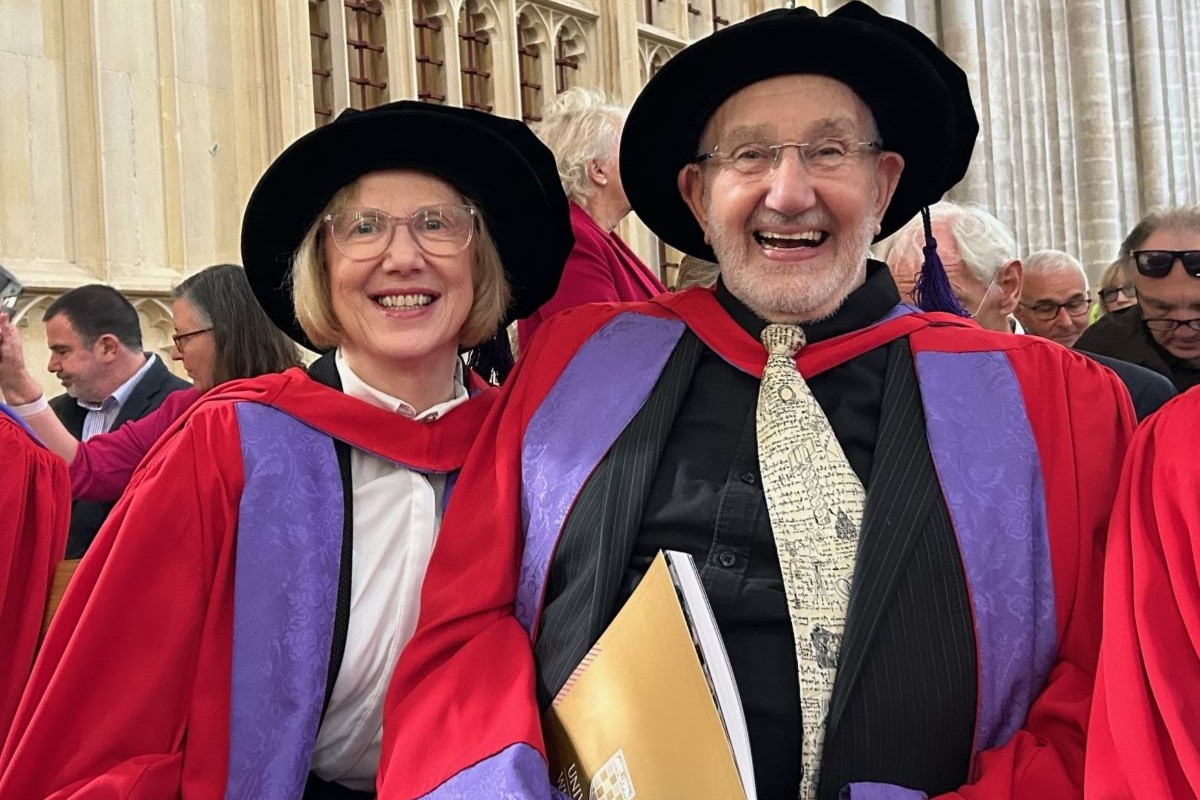“Cautious optimism” for the ITT sector under new Labour government, says NASBTT Chief Executive at Annual Conference

Nearly half (48%) of school-based initial teacher training providers are ‘quite optimistic’ about the prospects for ITT under the new government, according to survey findings unveiled at the National Association of School-Based Teacher Trainers (NASBTT) Annual Conference today.
Another 38% of providers said it was ‘too early to say,’ reflecting a “cautious yet hopeful outlook” as Labour begins to deliver on its education promises.
In her opening speech at the conference, NASBTT Chief Executive Emma Hollis said the event’s theme, New Thinking for a New Era, “represents where we are as a sector and where we’re heading under a new government” and that it was “time to look ahead to the future”.
“We’ve entered this new era with Labour’s government placing education front and centre,” Emma told 160+ ITT delegates attending the online conference. “In their very first week, they reaffirmed their pledge to recruit 6,500 expert teachers in key subjects. They have also relaunched their flagship teacher recruitment campaign, Every Lesson Shapes a Life, which aligns closely with our own mission. As the voice of school-based ITT providers, we welcome the change in tone from government – a tone that acknowledges the vital role of our sector and seeks to raise the status of the teaching profession. These steps signal hope for a stronger partnership between the government and the sector.
“Our ITT Insights Survey, which ran in October and November, captures mixed emotions – hope for greater stability and positive change alongside ongoing concerns about teacher shortages, funding pressures, and the pace of reform. Common themes include scepticism about whether ambitious recruitment targets can be met, as well as challenges surrounding workload and clarity on key policy areas. But I don’t need to remind you that teacher recruitment remains one of our greatest challenges. Complex issues require nuanced, solutions-focused approaches.”
Reflecting on progress around NASBTT’s manifesto for change, The Future of Initial Teacher Training: How can we attract more people to the teaching profession and support school-based ITT providers to deliver high-quality training?, which was launched on the day of the general election in July, Emma highlighted three key developments.
“Among the proposals in our manifesto, making teacher training affordable has been identified as the top priority by our members,” she said. “Recent analysis commissioned by NASBTT and UCET highlights the potential of a student loan reimbursement scheme to improve teacher retention. This research, Policy analysis of student loan reimbursements for improving teacher retention, adds weight to our call for meaningful financial reforms. We’ve also supported the recent rise in tuition fees to £9,535 – a necessary step to sustain financial viability. Meanwhile, our advocacy led to the relaxation of the 20-hour mentor training requirement, a decision that reflects the realities schools face in juggling capacity with quality. These wins remind us that when the sector speaks with one voice, we can effect change.”
In her speech, Emma also summarised activity in the first quarter of the current academic year, through which NASBTT is representing member interests.
“Another area where we are calling for change is in Ofsted inspections,” she commented. “Based on feedback from our members, we’ve advocated for a pause in inspections until January 2026 to allow the new framework to be thoroughly tested. This call is particularly important as it gives the sector the breathing room it needs to adapt to reforms thoughtfully, without compromising quality. While we continue to push for this, we’re preparing for inspections to potentially resume in January 2025. We have consistently reminded Ofsted of the urgency of publishing the updated framework to provide clarity and allow the sector to adapt effectively.
“It’s also worth noting how much progress has been made in this area. Our analysis of Ofsted ITT inspection reports from earlier this year showed that 97% of inspected partnerships were judged good or better – a testament to the resilience and dedication of our members. In 2024, no SCITT providers and just 5% of HEI partnerships were found to be less than good. This represents a remarkable improvement compared to previous years’ inspections, highlighting the ITT sector’s commitment to quality and excellence.
“At the heart of the wider conversation that Ofsted and others need to reflect on in this period of transition lies a fundamental question: What do we want our education system to be? Schools are being asked to take on increasingly complex roles, from addressing mental health to tackling social inequalities. Under Labour government, inclusion is set to lie at the heart of any future policy making. Whilst laudable in its ambition, this in itself will bring new challenges to the system. If we expect schools to function as more than educational institutions, then our training, funding, and staffing models must reflect that expanded mission. This leads us to another critical debate: What is the purpose of teacher training?
“For many, the motivation to teach comes from a desire to inspire, to nurture, and to pass on a love for learning. Yet, too often, our trainee teachers enter the classroom and quickly find themselves overwhelmed by administrative tasks that detract from their core mission. Addressing this disconnect is key to retention – a point that Catherine McKinnell MP, Minister for School Standards, herself recently emphasised.”
In addition to these broader themes, NASBTT is exploring the transformative role of technology, particularly Artificial Intelligence (AI), in education.
“Our ITT Insights Survey found that while 96% of our members understand what AI is, only 40% are actively using it in ITT,” Emma revealed. “Those who are using AI report significant benefits, such as saving time, improving efficiency, and enhancing the quality of their work. Generative AI is being used for tasks like lesson planning, curriculum development, and academic support. But we must strike a balance between leveraging these tools and preserving critical teaching practices. Our role is to help guide the sector in exploring AI responsibly and effectively, and we are committed to supporting our members as they navigate this evolving landscape.”
NASBTTT has also developed a member-informed response to the Curriculum and Assessment Review Call for Evidence, which can viewed here.
The two-day NASBTT Annual Conference includes leading voices from the Department for Education, Ofsted, Teacher Development Trust, NFER, Education Support, and a wide range of ITT providers, on the key issues, challenges and opportunities facing the sector. Topics include supporting the quality and capacity of ITT, the new ITT inspection framework, diversity, equity and inclusion in ITT, managing effective partnerships, and leadership and wellbeing. There is also extensive knowledge share and insight on specific areas such as AI and ITT, English as an Additional Language in ITE, the role of the lead mentor, special schools and alternative provision in ITT, and Intensive Training and Practice.
NASBTT, which represents the interests of schools-led teacher training provision in relation to the development and implementation of national policy developments, celebrates its 25th anniversary in 2025. “It is clear that our work is far from done,” Emma said. “We need a 10-year vision for ITT – one that makes teacher training accessible to all and redefines the teaching profession as a pathway of purpose, pride, and potential.”











Responses